Do you ever wonder what your horse says to you when it makes a sound? Well, every horse makes noises, but you should know that each horse’s sound has a meaning. So, here we’ll cover eight common horses sounds and what they mean.
Horses are beautiful and gentle animals that are easy to handle. But it’s sweeter if you understand what they say to you when making a given sound. Using their simple noises, horses can greet you, show moods, and give you warnings.
So, if you’re ready, let’s take a ride and see the eight familiar sounds with their meanings.
What sound does a horse make?
1. The neigh
You can call it the whinny. Expect the noise to start as a long scream and end with a soft voice from the horse. Also, a neigh will only last for at least 1.5 seconds, and you can hear it even if you’re a mile away.
So, what should ring in your mind when you hear a classic neigh? A horse will make this sound when it needs company and attention. It can be your attention or that of other horses.
Also, if you separate the horse from the rest of the herd, it will neigh. The message that comes from neighing is “I’m here.”
But what are the types of neighs? A confident neigh shows that your horse demands something at that moment. If it’s alone, it will be saying that it needs food ‘NOW.’ And if you hear the neigh while it’s in a herd, know that it’s a warning of something. Probably, that something isn’t right.
Remember, horses know their groups. So, horses react better to their neighing member than to a strange horse. Also, a mare responds more to the neighing foals than to other horses.
It shows that horses of the same group have a common neigh. Just like an accent in a given region, each horse has neigh to identify it with its group. Also, you might find that breeds have their types of neighs.
A whinny also differs across horses’ genders. So, it’s possible to tell if a neigh is from a female or male horse. Ensure you listen to the end of the tone.
2. A snort
Horses are easy to manage. With that, snorting is a way that shows their mood. So, it will mean that the horse is happy, under stress, or has seen a problem around it.
How does it happen? The horse will breathe out by force through its nose but while it has closed the mouth. A snort will last for at least one second. Also, it comes with an irregular heartbeat because of the vibration of the nostrils.
As the horse snorts, the head and tail will be in a high position. The whole body will be in a place of increased happiness or be ready to run away from danger. So, a horse will quickly know if there is something that disturbs its interest.
Remember, you can hear the snort even from 40 miles away. It means that the rest of the herd can listen to the snort from far away before the enemy does. The horse will snort in the direction of the danger, which makes the rest look in that direction. Isn’t that wise of the horses?
Also, on the negative side, snorting means that the horse is in pain. It may come because of an injury or infection like colic.
Let’s look at the positive message coming from a snort. A horse will snort to show the other horses that it’s happy to be in a new place or to have something new. Also, the horse will swish its tail and have a calm face.
Remember, a horse can snort when greeting people who are around it every time.
3. The squeal
A squeal comes from male and female mature horses. So, don’t expect to hear this sound from the younger horses. It is a sound that shows that the horse doesn’t like what’s happening at that moment.
But how does a stallion squeal? Like a snort, expect the horse to squeal while it has closed its mouth. As it makes the sound, the horse will hold the head and tail in a high position.
Also, squealing comes with the horse’s ears on a flat back and back legs kicking out.
You can hear a squeal from as far as 100 feet from the horse. Unlike a neigh and snorting, the sounds vary in terms of loudness and time. It will depend on the toughness of the situation.
So, one squeal can go for as long as 1.7 seconds and be as short as one second. But how loud can a horse squeal? Expect the loudest squeal to come during sexual encounters between a mare and stallion.
The reason for squealing is never the same in female and male horses. In a mare, it shows that it’s getting irritation, challenges, or pain. While checking for an injury in the foot of a mare, it will squeal to mean that it hurts, and you should stop it.
Also, a mare will squeal when it notices sexual moves from a stallion. It will be talking to the male horse to stop the advances but keep it company.
What does a stallion communicate when it squeals? It will show that there is a danger that makes it aggressive. So, the horse will be in a fight or flight condition and ready for anything.
4. The nicker
Besides the neigh, a nicker is the most common sound that you’ll hear from a horse. It shows that the horse wants your attention, and it’s happy. Also, the sound will be a joy to your ears.
So, how does a horse make a nickering sound? It comes from the horse’s gut with a low pitch and an average pulse rate. A horse nickers while it has closed the mouth, as the nostrils move while the ears will be in a forward position to pay attention.
You will hear the noise up to a position of 30 yards.
When will you hear the sound? Expect your horse to nicker when you’re feeding it. It will be saying that ‘come here’ or ‘I’m happy to see you.’ Sometimes, the horse will nicker to show that it’s begging for food but in a happy mood.
A mare and stallion will nicker when they flirt before mating. So, the stallion will approach the mare with a special greeting that has a sexual taste. It will be like saying, “Hey, beautiful.”
Remember, as a male horse makes the noise, it will nod the head, keep the nostrils open, and the mouth shut. This nicker is always long and quiet. Also, stallions have different pulses as they do the nickering. It makes it easy for a mare to know the stallion’s presence without looking at it.
The mares also nicker to the foals. It’s soft and quite audible from a given distance. As a mother, it will make the sound to show that it cares about the foals’ safety. So, the horses will be saying to the foals that “come closer, my children.”
Also, foals will know this sound right from birth. You can also mimic a nickering, and the newborn horse will respond.
5. The Groan
Groaning isn’t a typical sound in horses. Like a human being, most times, horses groan when in pain. So, when a horse moans as you ride, train, feed or jump on it, know that it’s in pain or satisfaction.
How does a horse make this sound? The noise comes from the deep part of the gut and in a low tone. It happens while the horse closes its mouth and the nostrils vibrate.
Horses have shallow and deep groans. It will depend on how tough or good the condition is for the horse. So, if it has a deep pain, expect the groan to be deep. But if it’s happy and the heart is complete, the moan will be shallow.
Some horses are natural grunters. So, it’s normal for a horse to groan even if there’s no problem. The horse will be happy, but when you ride or mount on it, it will grunt.
As a horse goes back to the stall after an exercise or race, you’ll hear it groan. It will be saying, “The day is over; I’m going for a bath, water, and food.” Also, while a horse relaxes, it can rollover the grass, dirt, or sand. In the process, you will hear a groan.
But how will you know that your horse is grunting in pain? So, when riding on it or dressing it for riding and you hear it groan, it should sound an alarm. The saddle or dressing will be too tight for the horse and thus causing some discomfort.
If the dressing and saddle aren’t a problem, a horse can also groan when suffering from a disease like colic. So, you should check if the horse is tired, lame, or needs water after a long day. Remember, if you are riding a new horse, it can groan. But first, check if it has any physical injury.
6. A roar
If you think that only lions roar, then you might be in shock. Your horse can also roar. And if it does shout, know that there is something wrong.
A horse can produce this sound when angry, in confusion, in fear, or in pain. So, it will be engaging in a serious fight, having a bad mood, or even both. The roar will while its mouth is open.
You can also call it a trumpet. Also, because in pain a roar being loud, it can sound like a scream.
It’s a horrible sound that a horse makes. Also, it’s rare to hear such a sound from your domestic horse unless you place it in a large herd.
Also, when a running horse roars, it shows a problem with its vocal ability. Any vet will notice if a horse roars while running; its vocals are not good. It is a disease, so you should check to see the condition of your horse.
7. The scream
A scream is similar to a roar. It’s louder than a roaring sound. Just like roaring, it’s rare to hear your domestic horse scream.
Also, a horse will scream while the mouth is open. Its ears will be upright.
So, if you hear it scream, know that it’s in pain or danger. Also, the sound will not give you any comfort.
When two horses are fighting, you will hear one of them or even both of them screaming. It shows that one horse has lost the fight, and it’s hurt. After that, the two horses will now become peaceful.
Those horses that engage in fights every time shouldn’t be together.
8. A sigh
Sighing is common among human beings. But horses can also sigh. It’s quite an audible sound from a horse, and it shouldn’t give you any worries.
But how does a horse sigh? It will breathe in deeply and then exhale slowly through the mouth and nostrils.
Sighing from a horse has different messages. So, a horse can sigh while you give it a massage or while you groom it well. Don’t get a shock if you see the horse farting as you provide it with therapy. It means that your horse is relaxed and calm as you handle it.
Sighing also means that the horse is tired and getting relief from an activity that was bothering it. And like human beings, a horse will moan to show that the mood is dull.
Even if a horse doesn’t sigh, it does not mean they aren’t having a good time. Remember, not every horse can sigh.
Conclusion
Horses are always gentle, quiet, and calm. So, when you hear them make a noise, it means that they are trying to talk to you or themselves.
The sounds can mean that a horse is happy, in a problem, or stressed. If you want to treat and handle your horses in a better way, learn about the different sounds they make.
All eight sounds will help you. So, which of the horse’s sounds do you like the most and why? Or do you have any insights or any questions about horses’ sound? Please feel free to reach to us.
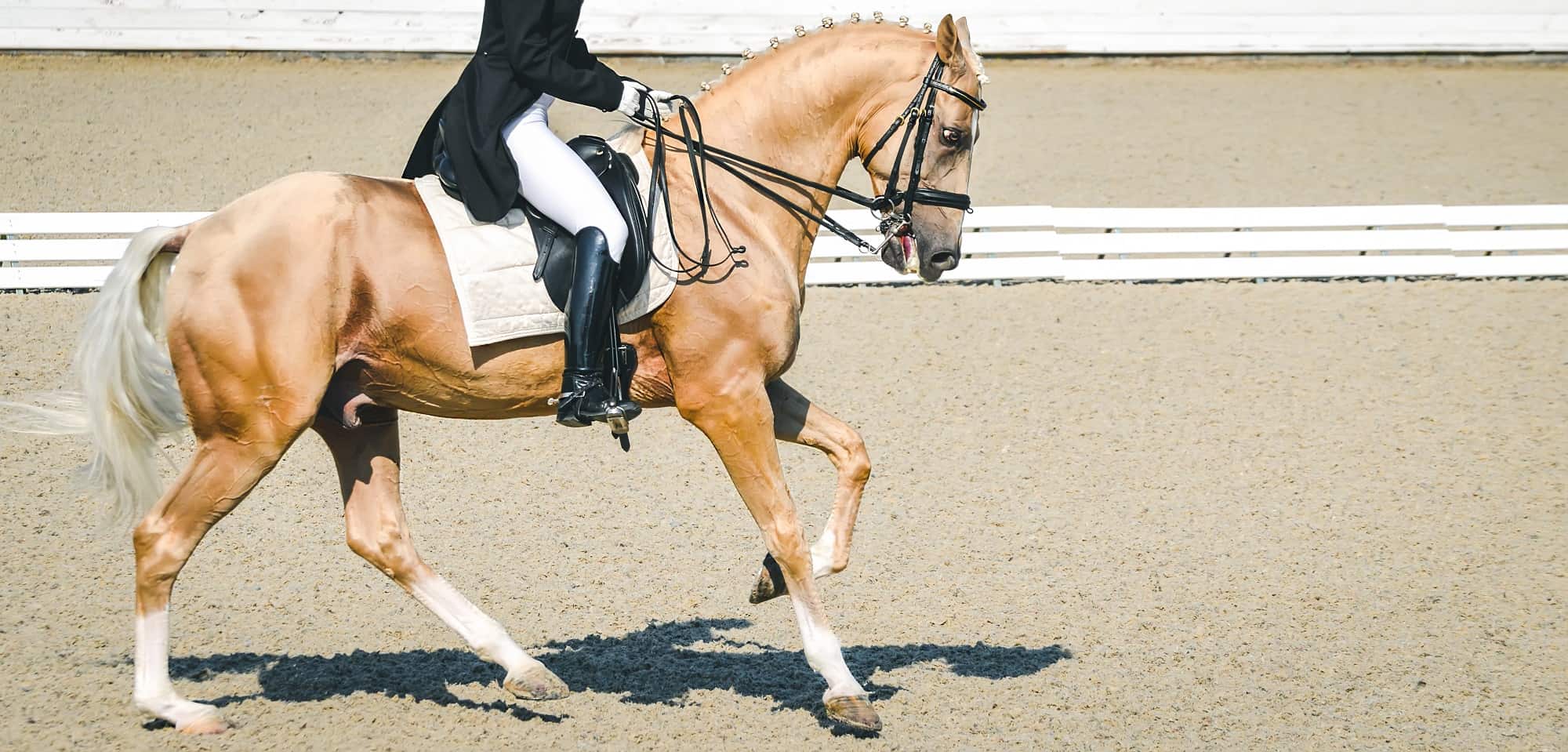
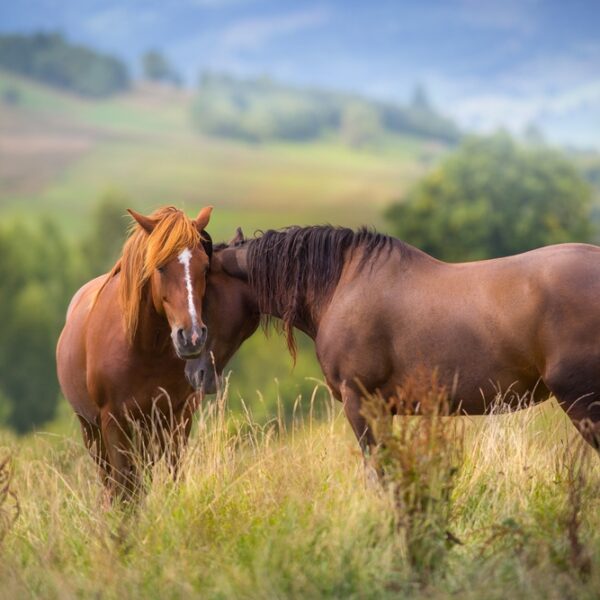
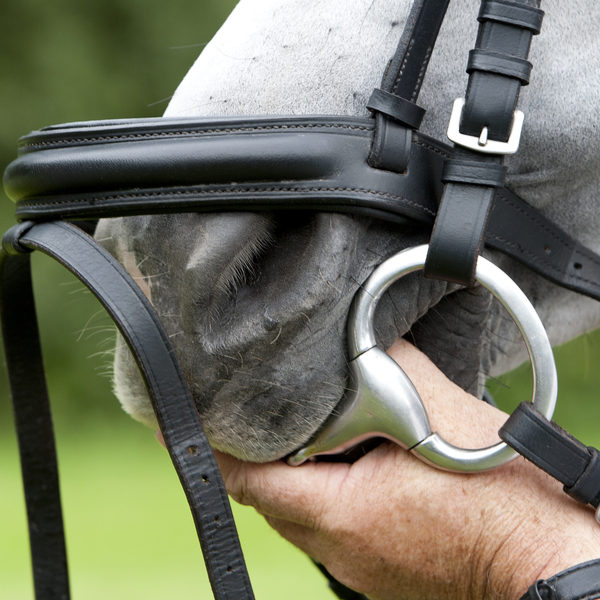
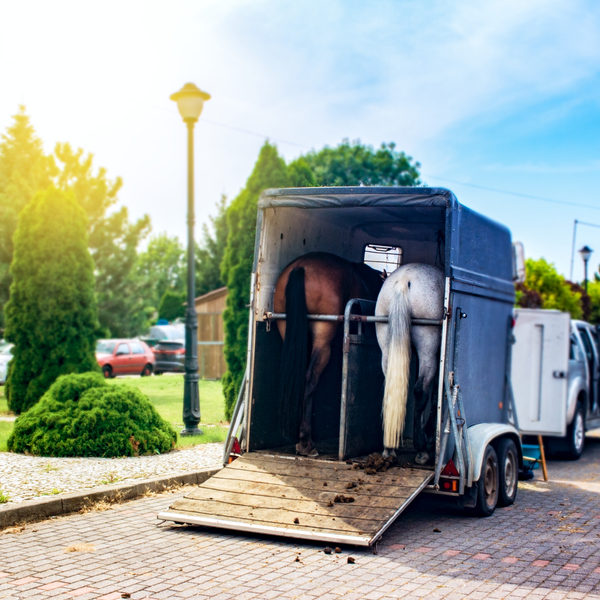
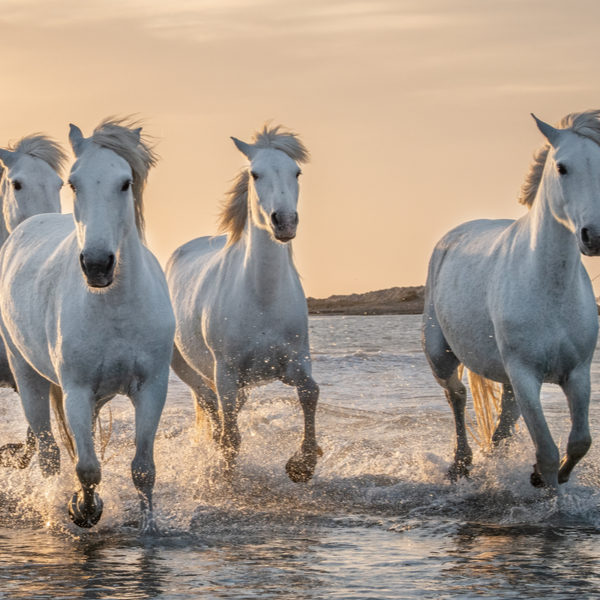
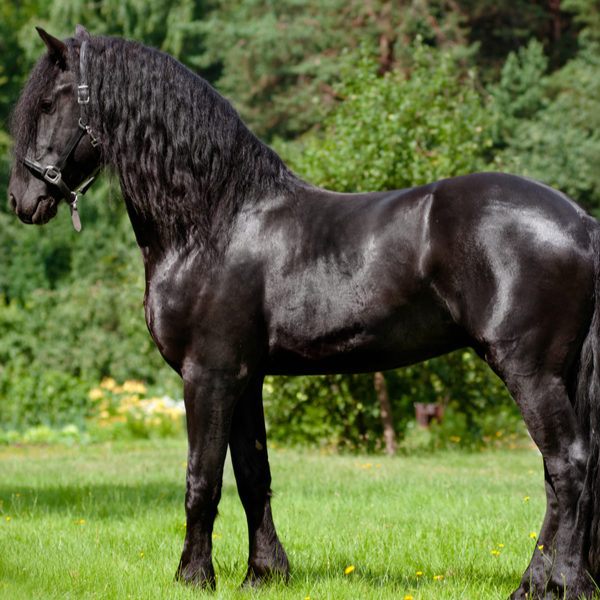
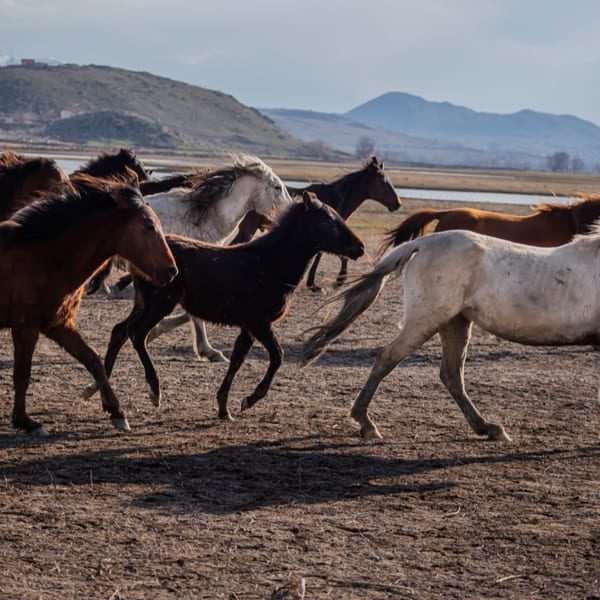
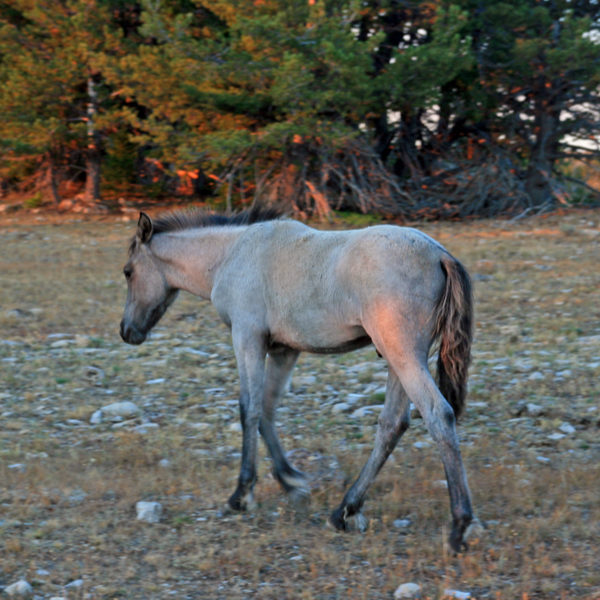
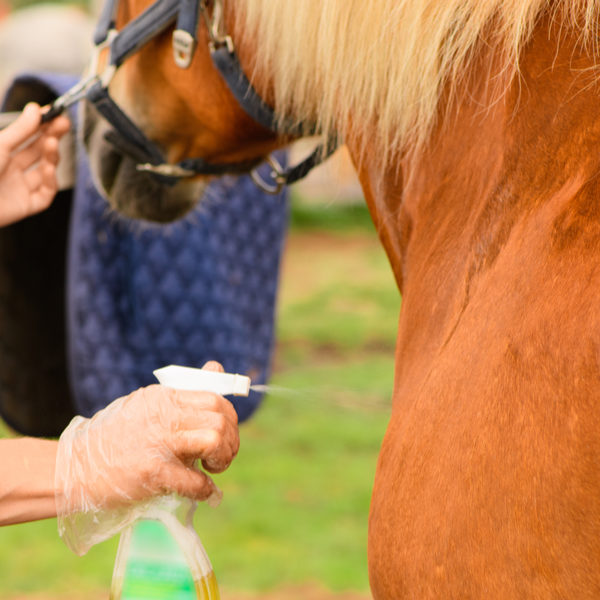
this was a total waste of time reading almost every explanation for each sound was from one end of the spectrum to the other. When a horse snorts they are either happy or under stressed. Same basic answer for when they moan or snicker. Basically what I got out of this article was that whoever wrote has no idea what horse sounds mean but figured they would state a wide range of possibilities in hopes to cover everything 🤔 😂 🙄 😅
Pretty mean and thoughtless response to a lovely article. Neigh, hope you have a better day tomorrow!
Awesome! Thanks for the informative noises.
I love the horse sounds in this video! They’re so calming and soothing. I can’t help but think of the meaning behind them. What do they mean to you?
I love the horse sounds in this video! They’re so calming and soothing. I can’t help but think of the meaning behind them. What do they mean to you?